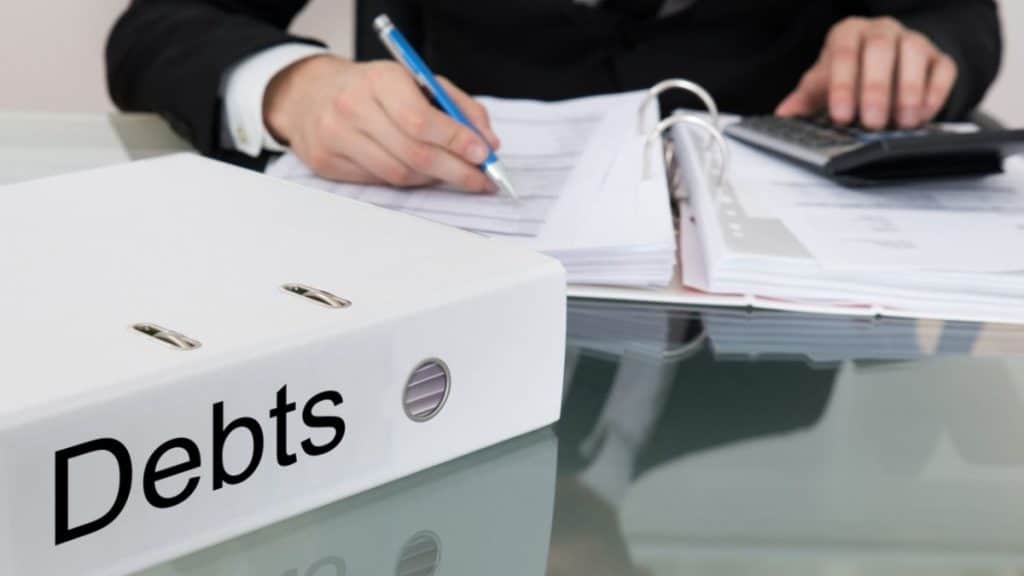Without proper management and a healthy cash flow, a company’s debts can become burdensome, damage the company’s reputation, and in the worst case, threaten its future.
To reduce the chances of this happening and increase your chances of being able to save the company, take decisive action by contacting a licensed insolvency practitioner. Depending on how early you act, you could have a range of options: consolidating your company’s debts and repaying in affordable instalments, restructuring the company, or by closing its doors and starting afresh.
If you don’t repay your company’s debts
As a director, you should always be aware of your company’s solvent position, including circumstances in which it becomes insolvent. Ignoring the problem and failing to take responsible, decisive action will not make it go away; it will only make it worse.
Creditors can still pursue your company for the debts it owes them. This action can start as reminders but escalate to formal County Court Judgments (CCJs), damaging the company’s credit rating if left unaddressed. In the worst-case scenario, creditors can apply for a winding-up petition, which can force the company into compulsory liquidation if not successfully challenged.
Additionally, if the company continues to trade while knowing that it can’t repay what it owes, it can lead to the company trading whilst insolvent, potentially leading to accusations of wrongful or fraudulent trading.
Writing off your company’s debts
If your company can’t afford to repay its liabilities as and when they fall due, then depending on that company’s circumstances, several options may be available. Which of these options is best for your company depends on its circumstances and your desired outcome.
Your business can explore the following processes if it is based in the UK and incorporated in a limited company. Sole traders operating outside a limited company structure will have different options.
Companies with a viable business model with the potential to be profitable if not for their burdensome debts could explore repaying a portion of their debts in monthly instalments tailored to an affordable rate. The company can do this by entering a Company Voluntary Arrangement (CVA).
The company continues trading for the arrangement’s duration, which is usually five years, retaining goodwill with customers. All creditor pressure is paused, and once the arrangement concludes, all the remaining unsecured debts are written off.
Alternatively, the company might benefit more from restructuring, which can be explored through administration. The insolvency practitioner acts as an administrator while they investigate the company and make the changes necessary to return the company to a profitable state, making it more appealing to potential buyers.
Despite your best efforts and intentions, the company could have such a level of debt that trading on won’t be possible. In this case, you can close the company through a Creditors Voluntary Liquidation (CVL). This process closes the insolvent company, drawing a line under its debts and writing off the unsecured debts it can’t afford to repay.
What can happen post-liquidation
If liquidation is the best way forward for your company, what can happen afterwards depends on how you’ve acted before and during the period of insolvency.
Limited company directors have limited liability protection, so the company’s finances are separate from their own personal finances, and any debts incurred by the company won’t affect them personally.
While this separation can keep directors from financial harm if their company is struggling to repay its debts, there could be exceptions to the rule.
For example, if the company was insolvent, yet continued to trade without seeking advice from a licensed insolvency practitioner, then the company could have been trading whilst insolvent, leaving the director open to accusations of wrongful trading. The director could lose their limited liability protection if this is the case. This could also happen if a director has signed personal guarantees to secure business funding.
Most directors can start a new limited company following the insolvent one’s closure or can seek employment at an existing company should they wish to, though there are restrictions surrounding the reuse of the old company’s name.
The liquidator will investigate a director’s conduct in the lead up to and during the period of insolvency, and if they’re found to have committed unfit conduct, or acted outside of the company’s best interests, then the director could have restrictions placed on them, which could include disqualification.
To conclude
Failing to manage your company’s debts can lead to severe issues and, potentially, the end of the company. If you find yourself in such a situation, you should take advice from a licensed and regulated insolvency practitioner. Ignoring the issues can have severe consequences, including County Court Judgments and, potentially, winding-up petitions.
Companies with viable business models can explore recovery options like a Company Voluntary Arrangement (CVA), while administration can allow the company to restructure. However, if the debts are of such a level that the company can’t recover, a Creditors Voluntary Liquidation (CVL) may be the best option, wherein the company closes in an orderly manner, writing off the unsecured debts.
While directors often retain their limited liability protection, that can change if they are found guilty of trading whilst insolvent, wrongful trading, or have signed personal guarantees. In which case, they could face further ramifications.


